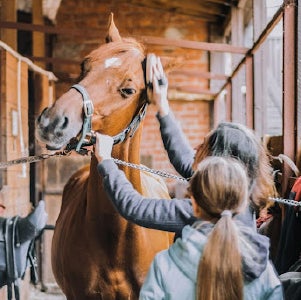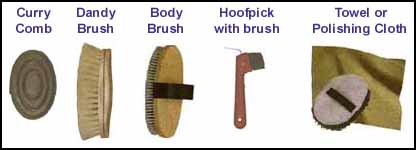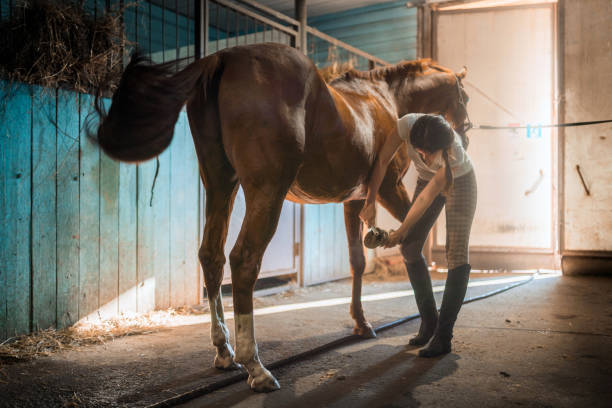Horse Grooming & Hygiene: A Comprehensive Guide

Maintaining your horse’s grooming and hygiene is essential for their health, comfort, and overall well-being. Proper grooming not only keeps your horse looking its best but also helps prevent health issues and strengthens the bond between you and your horse.
Why Grooming Matters

- Health Monitoring: Grooming allows you to check for injuries, skin conditions, or parasites.
- Improved Circulation: Brushing stimulates blood flow and promotes a healthy coat.
- Comfort: Removing dirt and sweat prevents irritation and infections.
- Bonding: Regular grooming sessions build trust and deepen your relationship.
Essential Grooming Tools
| Tool | Purpose |
|---|---|
| Curry Comb | Loosens dirt, mud, and hair |
| Hard Brush | Removes loosened dirt and hair |
| Soft Brush | Cleans sensitive areas and smooths coat |
| Hoof Pick | Cleans debris from hooves |
| Mane Comb | Detangles mane and tail |
| Sponge | Cleans face and sensitive spots |
Step-by-Step Grooming Routine
- Secure Your Horse: Tie your horse safely or have someone hold it.
- Curry Comb: Use circular motions to loosen dirt and hair.
- Hard Brush: Sweep away loosened debris.
- Soft Brush: Gently clean the face and legs.
- Hoof Care: Pick out hooves to remove stones and dirt.
- Mane and Tail: Detangle carefully with a comb or brush.
- Final Touch: Wipe eyes, nose, and dock with a damp sponge.
Hygiene Tips
- Regular Bathing: Bathe your horse as needed, using horse-specific shampoos.
- Hoof Health: Keep hooves clean and dry to prevent thrush.
- Blanketing: Use blankets appropriately to protect from weather but avoid overheating.
- Stable Cleanliness: Maintain a clean living environment to reduce infections.
Common Grooming Mistakes to Avoid
- Using harsh brushes on sensitive skin.
- Neglecting hoof cleaning.
- Over-bathing, which can strip natural oils.
- Ignoring signs of skin infections or parasites.
FAQ
Q: How often should I groom my horse?
A: Ideally, daily grooming is best, especially if the horse is ridden regularly.
Q: Can grooming help with behavioral issues?
A: Yes, grooming can calm nervous horses and improve their temperament.
Q: What if my horse resists grooming?
A: Start slowly, use treats, and ensure the environment is calm.
Q: Are there specific products recommended for sensitive skin?
A: Yes, hypoallergenic and fragrance-free grooming products are best for sensitive horses.
By following these guidelines, you can ensure your horse remains healthy, comfortable, and happy. Regular grooming is more than just a routine—it’s a vital part of horse care that benefits both horse and owner.
